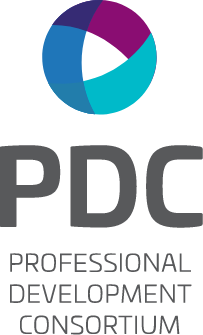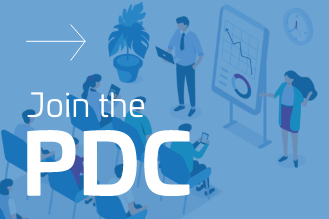You are here
Neurodiversity
November 7, 2022
By: Marcie Y. Davis
Assistant Dean, Office of Career Services
SMU Dedman School of Law
As the Assistant Dean of Career Services at SMU Dedman School of Law, part of my job is to counsel students and help them identify and achieve their career goals. I pride myself on my ability to offer sage advice that, if followed, is likely to result in employment – whether for the summer, semester, or post grad.
Recently, I had the privilege of working with a neurodivergent student[i] who asked my advice on whether and when to disclose his autism to a potential employer. This was a question I had not encountered before and one where I was not entirely sure how to advise my student. Intuitively, I knew that there is not one right answer and that I needed more information, both about the employer and the job. Also, I needed to know if my student was aware that he has no obligation to disclose at all.
As I worked with my student to gather more information, I could see how disclosing might be beneficial to him, particularly in the interview phase. I could see how an interviewer might mistake his lack of eye contact for lack of engagement, his flat affect for lack of enthusiasm, and his brutal honesty about his career plans five years down the road for lack of judgment. But I worried that, if my student chose to disclose, he could potentially be met with discrimination – not necessarily overt discrimination (although that could happen), but implicit bias that could cause the employer to make a negative presumption about my student’s abilities. And if he disclosed too early, it could thwart his ability to get an interview at all.
At the end of the day, it is my job to support my student and help him navigate the recruiting process. The need for support was obvious given the fact that I, myself, was struggling to navigate these waters. If my student were to disclose, when would be the best time to do so? In a cover letter? In a diversity statement? In the interview? After the interview? Once he receives the offer? After he accepts the offer? After he starts work? Should it be a soft disclosure or an open disclosure?
I did my best to advise my student based on the firm, the interviewer, and his desire to disclose, ultimately advising him to disclose in the interview as part of his response to one of a number of questions that was likely to be asked, but I was left wondering if there is a better way to manage the recruiting process so as not to put students in the untenable position of not disclosing and risk being misunderstood or disclosing and risk potential discrimination.
What if the legal industry trained attorneys on neurodiversity and how it can better the work force? Better yet, what if legal employers started actively recruiting neurodivergent employees in the same way that corporations are currently recruiting them?[ii] Corporations have quickly discovered that neurodivergent people have a number of unique strengths, abilities and perspectives that can benefit any employer and workplace, including attention to detail, hyper focus, problem solving, creativity, spontaneity, determination, high-work ethic, and loyalty – all characteristics that are highly sought after by law firms. Coupled with the fact that many neurodivergent students do exceptionally well in law school, there is good reason for legal employers to follow the lead of the business world.
I was encouraged to read about Simon Margolis’ experience in a recent NALP article – “Accessibility Without a Disadvantage: Supporting Neurodivergent Lawyers and Law Students” by Angela Sordi, co-chair of NALP’s Neurodiversity in the Legal Industry Task Force. The article focuses on a conversation with Simon, a Disputes Associate at Bordern Ladner Gervais LLP in Toronto, Canada, and offers his perspective on navigating law school, recruiting interviews, and ultimately work. It’s a perspective that we need to hear and one that we ought to bring to the forefront of our diversity discussions. I want to specifically recognize that while both the NALP article cited and this blog focus on autism, through my research, I have learned that neurodivergence includes so much more, including, but not limited to people who have or identify as having ADHD, learning or intellectual disabilities, OCD, depression, or anxiety, to name a few, and I am committed to learning all I can so that I can best support any student who identifies with any of these less typical cognitive variations.
In closing, I want to voice my sincere hope that the diversity pipeline law firms seek to fill expressly include neurodivergent students so that these talented and capable students can engage in the recruiting process without the added stress of trying to figure out whether and when to disclose. It is also my hope that as more and more legal employers begin to embrace neurodiversity, neurodivergent students will feel encouraged to disclose, if that is their choice.
[i] For purposes of this article, I want to define three terms: “neurodiversity” (the idea that we all have different brains and ways of experiencing the world around us), “neurodivergent” (people who think differently from the way most of the population would expect them to think), and “neurotypical” (people whose brains act as people would expect them to act).
[ii] A quick Google Search revealed that the following corporations actively recruit neurodivergent talent: Boeing, Chevron, Dell, Ernst & Young, Goldman Sachs, JP Morgan, Microsoft, and SAP among others.


